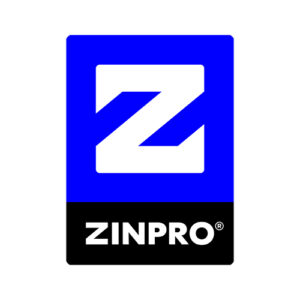Nutrition impacts gut health and immune response

A healthy pig gut consists of long villi and well-functioning tight junctions. These essential components will come under pressure at weaning. How can swine producers help piglets overcome weaning challenges with minimal impact on the animal’s gastrointestinal tract?
One of the biggest challenges in the pork industry is piglet survivability and performance. The stress of weaning and loss of passive immunity from the sow’s milk increases the susceptibility of newly weaned pigs to infectious intestinal bacteria creating challenges to overall survivability. The average pre-wean mortality rate in the United States is around 16% with high variation, and opportunity for improvement. So, ensuring piglets develop strong gut health and a robust immune response is vital for survival.
Research has shown that by supplementing gestating gilts and sows with performance trace minerals, an improved performance response can be seen, and this has a lasting impact on the offspring by helping to improve gut integrity.
Preventing leaky gut
The lining of the intestinal tract is comprised of multiple epithelial tissue layers. The villi, or absorptive structures of the intestine are lined with enterocytes which is where nutrients are absorbed. These cells are bound to each other by complex protein structures, one of which is tight junctions. Their role is to prevent bacteria, pathogens and toxins from passing between the enterocytes and into the bloodstream, helping to create a protective physical barrier.
A healthy intestinal wall has long, finger shaped villi that provide a large surface for digestion and absorption of nutrients. Before weaning, intestinal villi (responsible for nutrient absorption) are thin and elongated, whereas after weaning, villus height has been shown to decrease about 75% during the first 24 hours post-weaning, quickly becoming thick and short. Shortened villi can impair digestion and nutrient absorption. A reduction in nutrient intake also compromises the integrity of the tight junctions.
Factors, such as heat stress, reduced feed intake, bacteria, feed contaminants, etc., can weaken the quality of the tight junctions, leading to a syndrome called ‘leaky gut’. This condition – leaky gut – allows molecules such as bacteria, pathogens and toxins to pass between the epithelial cells, resulting in cell damage and inflammation of the intestine. When this occurs it triggers the immune system, which requires significant levels of nutrients to deal with the inflammation, reducing the amount of nutrients available for piglet growth.
Research has demonstrated the nutrition of one generation can have a positive or negative impact on the nutrition of the next generation. This is true for humans, as well as animals. Zinpro partnered with the University of Alberta, Canada (in research by W.R. Caine and others, 2009) to evaluate how incorporating performance trace minerals into the diet of the gestating sow can help the piglet develop a more robust initial immune response.
Sows were split into 2 groups and fed either inorganic trace minerals or performance trace minerals during the last stage of gestation (day 80 to 114):
- Inorganic treatment: 120 ppm Zn from zinc oxide (ZnO)
- Zinc amino acid complex treatment: 250 ppm of zinc from Availa-Zn added on top of the control diet from day 80 to 114 of gestation.
Once the sows farrowed their litter, they transitioned to a common lactation diet and the piglets were harvested at 14 days of age to view their intestinal morphology.
While villus height has been shown to decrease about 75% during the first 24 hours post-weaning, quickly becoming thick and short, the piglets born to sows receiving zinc from Availa-Zn had higher intestinal villi height and a higher villi height to crypt depth ratio. This resulted in a greater absorptive surface for the piglet to absorb nutrients, while also helping to reduce the incidence of diarrhoea, see Figure 1.
Figure 1 – Effect of supplying complexed zinca to sows on the villi of 14-day old nursing piglets.

A more robust immune response
The intestinal morphology also showed an increase in intra-epithelial lymphocytes which help to eliminate damaged or infected intestinal epithelial cells. This in turn helps improve the intestinal immune response of the pig. There was also an increase in goblet cells in the intestine. Goblet cells are responsible for producing mucin, and mucin creates that mucus layer along the walls of the intestine. Intra-epithelial lymphocytes target and destroy pathogens to help reduce overall pathogen load. Goblet cells are responsible for mucin production which helps act as a protective mucous barrier for the lining of the intestine, see Figure 2.
Figure 2 – Effect of supplying complexed zinca to sows on lymphocytes and goblet cells of 14-day
old nursing piglets.

For more information, go to EssentialFeed.zinpro.com. The site provides additional insights into inflammation and its link to common production challenges, as well as research summaries demonstrating the role performance trace minerals play in the management of inflammation.
Author:
Zach Rambo, global RNS species leader – swine,
 Beheer
Beheer




 WP Admin
WP Admin  Bewerk bericht
Bewerk bericht